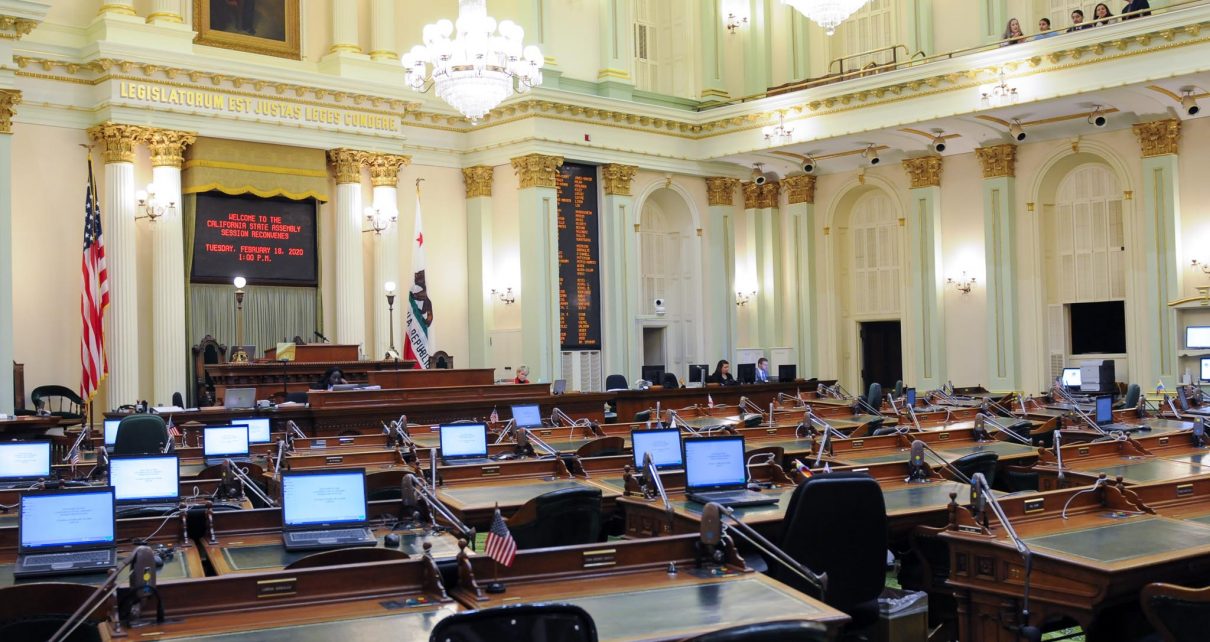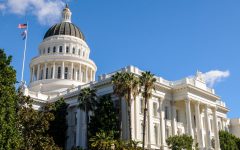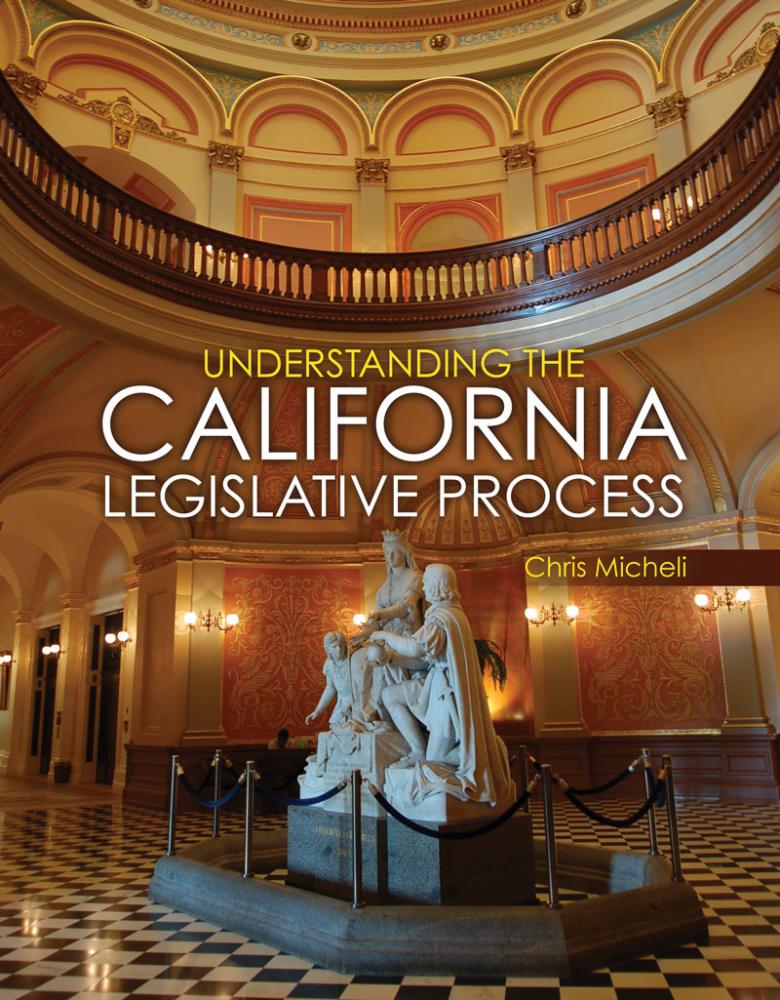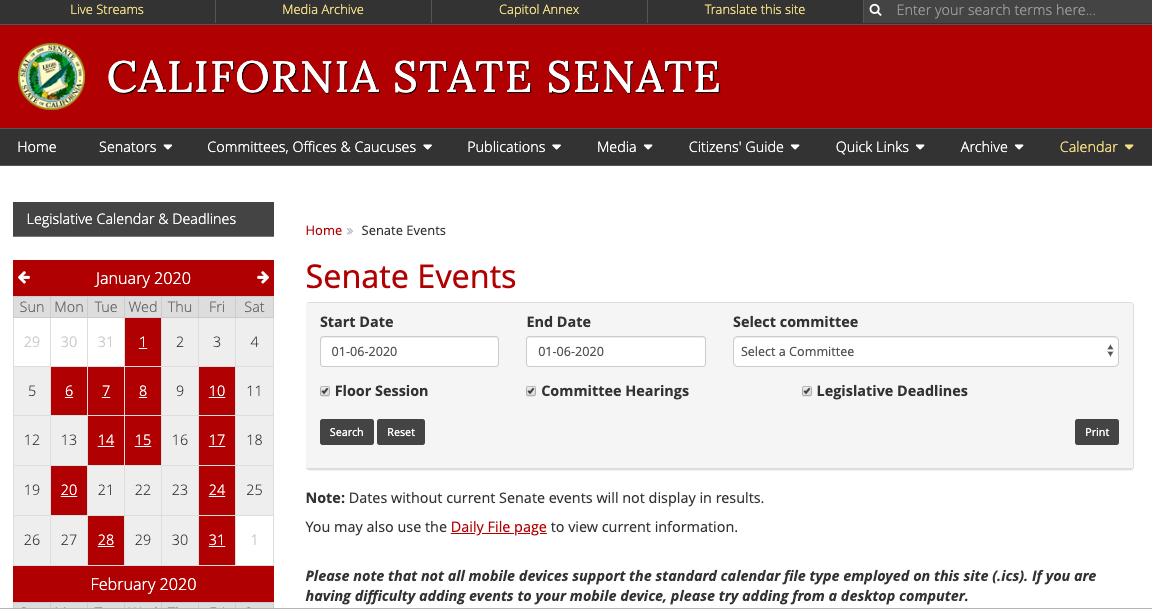
California State Assembly. (Photo: Kevin Sanders for California Globe)
Legislative Interference with the California Administrative Procedure Act
What is the problem with pre-determining an outcome under the APA?
By Chris Micheli, February 5, 2022 5:48 pm
The Legislature, as the lawmaking branch of state government, has the power to delegate some of that lawmaking authority to agencies or departments in the executive branch of state government. This is what we refer to as “delegation of authority.”
Unfortunately, when the Legislature grants some of its lawmaking authority, it occasionally does so to the detriment of the public and the regulated community. How is that?
When executive branch agencies and departments make “law,” they do so through regulations. This rulemaking activity is referred to as the agency’s quasi-legislative activity. In other words – where the Legislature enacts statutes, the executive branch adopts regulations.
When these agencies and departments engage in quasi-legislative activities (i.e., creating regulations via rulemaking), they must comply with the Administrative Procedure Act (APA). The APA – statutory provisions regarding the process of rulemaking – govern how executive branch agencies and departments must conduct their rulemaking activities.
The APA has two main features: notice of action (i.e., the public and the regulated community are given notice of proposed rulemaking activities) and opportunity to be heard (i.e., the public and regulated community are given the opportunity to review and comment on regulations). Some commentators note that the APA implicitly includes add a third main feature: recording public comment to create an administrative record assuring effective judicial review.
There are times when these authorizing statutes enacted by the Legislature modify these provisions of the APA or even exempt rulemaking activities from the APA, which is problematic because these provisions may limit public awareness or engagement. What are some examples of these statutory provisions?
The first is simply an exemption from the APA.
By way of example:
(c) The Administrative Procedure Act (Chapter 3.5 (commencing with Section 11340) of Part 1 of Division 3 of Title 2 of the Government Code) shall not apply to any standard, criterion, procedure, determination, rule, notice, guideline, or any other guidance established or issued by the Franchise Tax Board pursuant to this section.
What is the problem with creating an exemption from the APA? First, it means that the Legislature (a body that is accountable to the public) has delegated its authority to an executive branch agency that does not have to seek public input on its actions. Second, it means that notice and the ability to comment are eliminated for members of the public and the regulated community. Third, it means that an executive branch agency or department not only has authority to adopt regulations, but also that it does not even have to follow the statutory procedures for adopting those regulations.
The second is pre-determining an aspect of the APA or an action by the Office of Administrative Law (which is essentially charged with reviewing rulemaking activities of executive branch agencies and departments to ensure they complied with the APA). By way of example:
(e) The Attorney General may adopt rules and regulations to implement this section. The Attorney General may adopt initial emergency regulations to implement this section in accordance with Chapter 3.5 (commencing with Section 11340) of Part 1 of Division 3 of Title 2 of the Government Code and these regulations shall be considered by the Office of Administrative Law to be necessary for the immediate preservation of the public peace, health, and safety, or general welfare.
What is the problem with pre-determining an outcome under the APA? In the above example, the statute has deemed an emergency exists. The APA provides for regular rulemaking and for emergency rulemaking. In emergency rulemaking, those regulations are temporary in nature, and so there are significant reductions in the notice and comment period otherwise required for regular rulemaking.
However, an emergency regulation can only be adopted if the executive branch agency or department makes a finding and that is justification (reviewed by OAL) for that emergency finding. In other words, the agency or department has to demonstrate that, in fact, the regulation has to be adopted on an emergency basis to preserve the public health or safety. With the above statutory language, the agency does not have to make such a demonstration and the OAL is precluded for reviewing and approving that emergency finding.
Both of the above examples grant too much authority to the executive branch of government by the legislative branch and neither the public nor the regulated community benefits. Just as the Legislature should conduct oversight of the other two branches of state government, it should not delegate its lawmaking authority without ensuring the APA is followed in all cases.
- Relations of LLC Members and Managers - February 24, 2026
- This Is an Interesting Limit on Rulemaking Power - February 23, 2026
- Miscellaneous Civil Action Proceedings - February 23, 2026





3 thoughts on “Legislative Interference with the California Administrative Procedure Act”